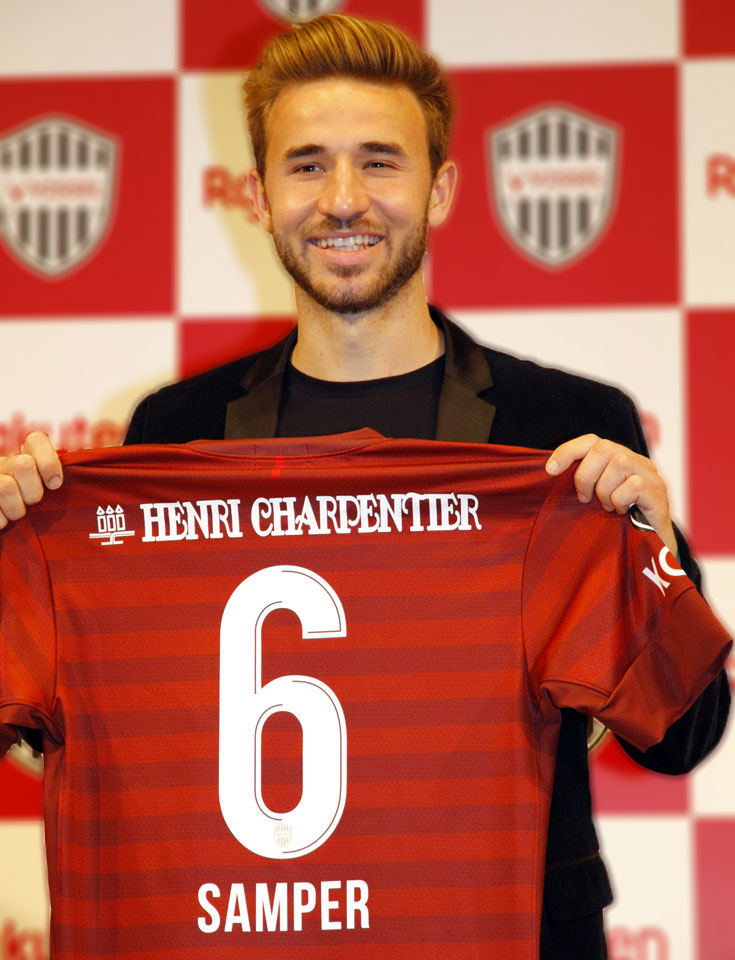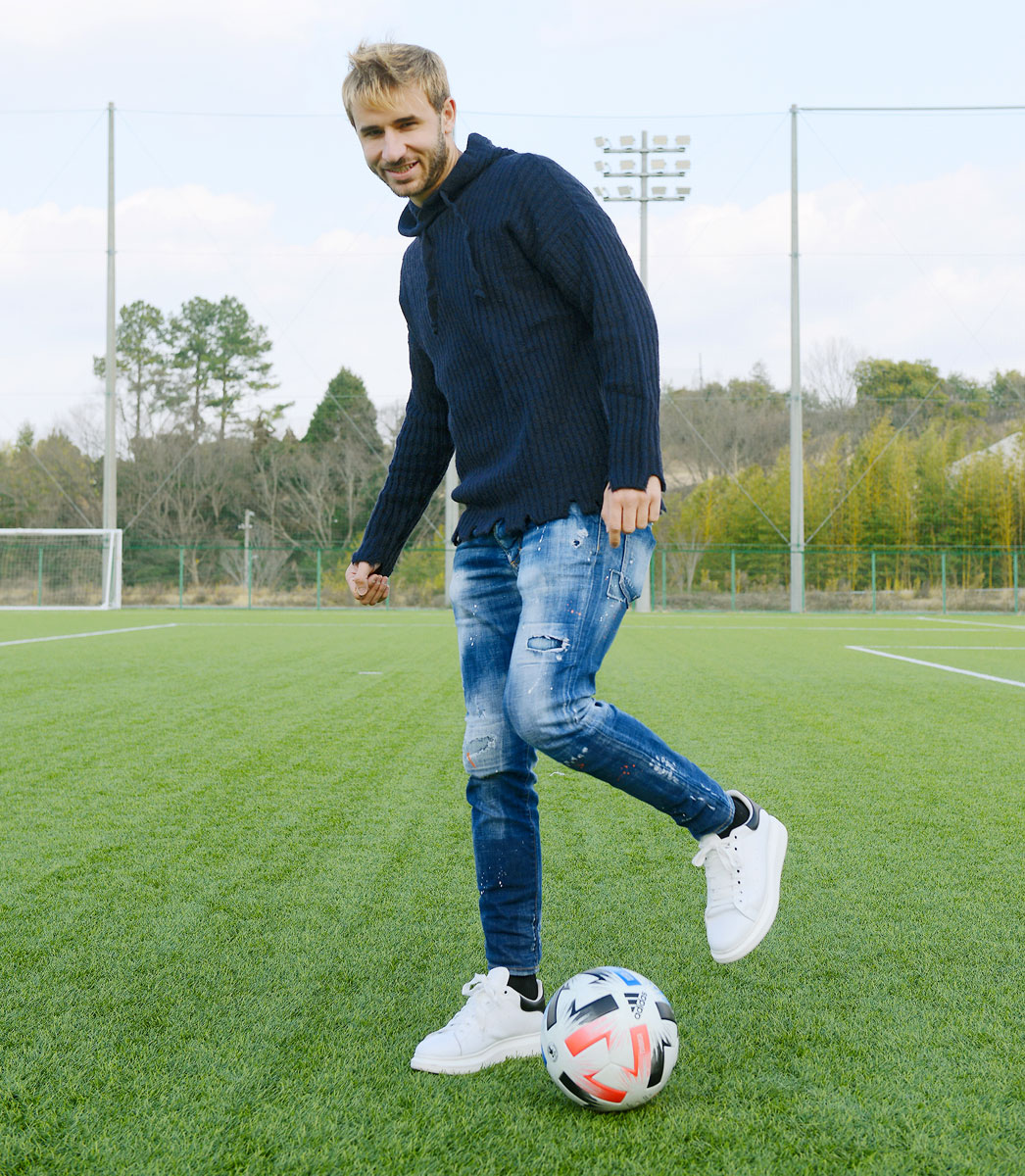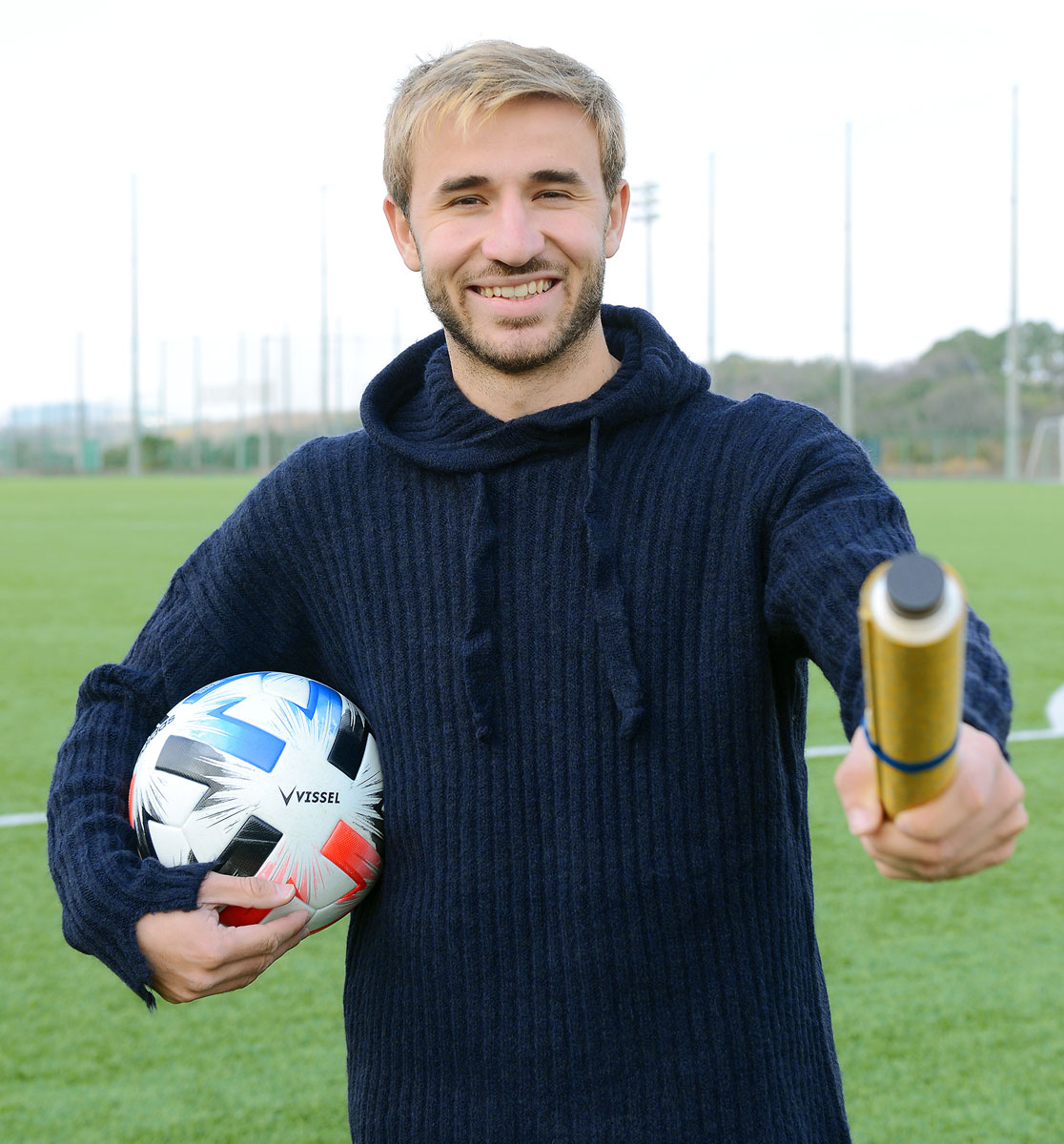

© Yuki Saito

The biggest value I find in sport is doing one’s best. In the case of football – a team sport – it is also to engage in friendly rivalry with teammates while working and cooperating with each other to play matches against opponents. These are the huge lessons I have learnt by experience.
I joined the BARÇA Academy (FCB Escola) when I was six years old. It is the youth football education school of FC Barcelona, one of the world’s top clubs. I made my First Team debut at age 19 after I went through all the BARÇA Academy teams for different age groups, as the first ‘purely Barça-bred’ player.
After that, I faced some difficult times, such as being loaned out to different teams or sustaining a number of serious injuries. Even so, I have been able to gain some wonderful experiences in my life, and I feel very blessed. With such valuable experiences and sense of values, I moved on to a new land by joining the Vissel Kobe football club in 2019. My devotion to and perspective on sport have also been expanding.


© VISSEL KOBE
My brother Jordi, who is five years older than me, is an active professional tennis player. He is a very big presence in my life, and I have always looked up to my brother, wanting to be like him. In fact, I used to play tennis as a child, too.
However, when I was six, my grandfather had learnt that the BARÇA Academy was going to have try-outs, and he took me there. I passed the test, so I faced a moment to decide whether I would quit tennis and focus only on football. Of course, no one can really decline an offer from Barça!
Before even starting to teach football-related skills, Barça first makes children learn about its core values, particularly respecting their teammates. From everyday things, like making sure to say hello to each teammate after arriving at the locker room, we learnt the importance of working together with teammates and peers. This is an important value that I acquired for living my life.
At the same time, I learnt how football itself should be understood. Barça promotes the Club’s working philosophy and a consistent style of football, from the academy up to the First Team. For example, how short passes are used for continuous movement on the pitch and how players cover their area on the pitch in the way they position themselves – those kinds of unique play of style. Although this is unique to Barça, it has proved hugely beneficial for my ensuing life as a professional football player in how I understand football and move dynamically on the pitch.
Meanwhile, I have had to handle injuries many times in my football career. Being unable to play due to an injury is a very difficult period for professional athletes. After all, the injury keeps us from a sport that we love. Fortunately, my family has helped me get through such times, always being close by me and consistently supporting me. And, it was not just family, either. I have been able to face myself and maintain a positive attitude with the help of the people who are always there for me, during good times and bad times. They are the people whom I truly hold dear to my heart.

© Yuki Saito
My understanding of the Japanese modality of respect – which I had seen and sensed in Barcelona – was expanded after I came to Japan.
The Japanese people I had encountered in Barcelona held a sense of gratitude towards others and regularly expressed their appreciation verbally. It was totally different from the way Spanish people behave, so I found such behaviour of the Japanese very interesting.
There were many factors to making my decision to come to Kobe. My brother, who had competed in tennis tournaments in Japan, encouraged me to go. The fact that Mr. Andrés Iniesta, who was captain of First Team at Barça for several years, had left Barcelona to play for Vissel Kobe in the J.League was another. However, the biggest factor was my interest in Japan, especially its culture. I did not know much about the city of Kobe before, but I now find some similarities between Kobe and Barcelona. I am living a fulfilled life, and I am really enjoying my time in this pleasant place.
After I started living in Japan, I found the “respect” expressed in daily life and on the pitch by the Japanese people – including my teammates at Vissel Kobe and the people of Kobe City – to be even deeper and more expansive than I had thought. As a football player, I believe that getting to know the Japanese style of respect and expressing it on the pitch, even if in a different way, helps me expand my perspective and also get many supporters across Japan. I want to continually aim to achieve success in football. Whether it is about playing in Japan or elsewhere, the important thing is that I enjoy playing football and stay happy.
We see an increasing number of people enjoy playing e-sport in recent years. I can understand the fun of such online games, so I do not think it would be easy to have e-sport players shift to playing a real, physical sport. Although I do not know what kind of contribution I could make to the future of sport, I do think that exercising your body through sport or going to a sport event or match as a spectator offers a wonderful life experience that you cannot get by playing e-sport. For me, it is very important that people compete against each other on a real, physical pitch and experience the biggest value that sport has to offer directly.


© Yuki Saito
Relationships with people that I have met through football will last my entire life, even after my professional career is over. Achieving results as a member of Vissel Kobe is my current mission. With that said, I also understand that being a professional football player comes with a term of validity – that is to say, my career as an athlete. That is why my relationship with the people that I will have met by the end of my professional football career is irreplaceably important to me. I want to value and nurture those relationships.
No matter the level of an athlete’s performance, it is important that they have good balance in their life – that they do not overly fixate on just sport. In my case, football accounts for about 60 percent of my life, with my family and private life taking up the remaining 40 percent. I constantly think about how I should be as a person, more so than how I should be as an athlete. My family helps me get through difficult periods, such as when I suffer from an injury. Living apart from my family is not easy, but what is needed and what I should focus on is to maintain a good balance in my life, such as by spending as much time as possible with them.
I hope that my supporters can think of me as someone who is close to them – a homely and humble presence, like family. Here in Japan, I am endeavouring to learn the Japanese style of respect even more, and I try to act with humility while also remembering the respect that I learnt at Barça. I hope that people will remember my human nature, not just my football.


© Yuki Saito
From the time that I was a member of the BARÇA Academy, and up to the time that I advanced to the First Team, I served as a captain in the Barça teams for each age group that I was in. I think the most important thing as a captain is to represent the team in-and-out of the pitch – to be a presence who embodies what the team is aiming for as well as the team’s characteristics.
Mr. Carles Puyol, who was BARÇA Academy-bred like me, served for many years as a captain of Barça’s Frist Team. He was a wonderful captain, and in terms of players at Barça, I see him as being my role model. The time when we were on the same team was short, but I always followed what he was doing – not just to learn from how he played football but also to learn from his captaincy. He brought courage to the team, in good and bad times. His leadership and attitude toward it left a deep impression on me.
I think leaders are those who are respected by other people. They also must have everyone’s attention when they speak, and people must believe in the leader and follow his instructions. Leaders must have the ability to spearhead others. This also holds true outside of the world of sport.
By challenging myself and seeing how far I can go and what kind of a presence I can be, I surely should eventually be able to see my future. I want to maintain my attitude of respect and humility, while believing in myself and walking my path without fear.


Born in Barcelona, Spain. Joined FC Barcelona (Barça), one of the world’s top teams, at age six, and served a captain of each Barça age-group team that he played in, making his way all the way to Barça’s First Team.
After signing a professional contract with Barça, Samper was later loaned out to other teams in Spain. He joined J.League club Vissel Kobe in 2019.